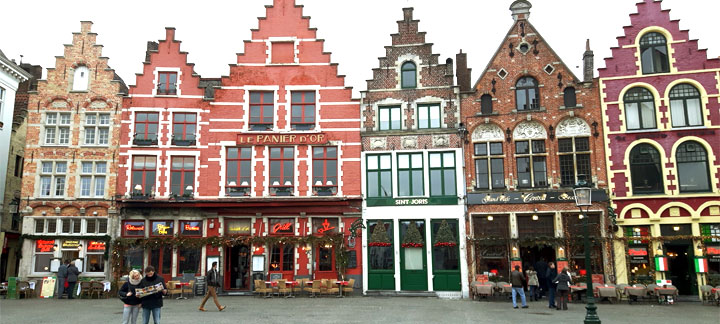Belgium remains one of Europe’s most dynamic and strategically positioned food import markets. As a central hub within the EU, with world-class logistics infrastructure and a highly diverse consumer base, the country continues to play a vital role in the movement of food products across the continent.
A Stable but Evolving Import Landscape
In 2024, Belgium’s food import market maintained steady growth, with total agri-food imports exceeding €60 billion. The country’s strong re-export capacity—particularly through the Port of Antwerp-Bruges—has reinforced its role as a gateway for products entering the broader European market.
Top categories for imports continue to include fruits and vegetables, dairy products, meat and fish, beverages, and processed foods, but the demand profile is shifting. Importers are increasingly looking for value-added, sustainable, and niche products that align with changing consumer habits.
Key Trends Shaping the Market in 2024–2025
1. Sustainability and Traceability Lead the Way
Belgian retailers and distributors are prioritizing eco-friendly sourcing and transparent supply chains. Certifications like Fairtrade, Organic (EU Bio), and Rainforest Alliance are now seen as essential, not optional. Importers are seeking partners who can guarantee responsible production and provide detailed origin information.
2. Plant-Based and Alternative Proteins Gain Ground
Driven by health and environmental awareness, demand for plant-based foods and meat alternatives continues to rise. Products such as legume-based snacks, vegan cheeses, and ready-to-eat meals are finding strong support from importers serving the retail and HoReCa segments.
3. Ethnic and Exotic Foods Expand Their Footprint
Belgium’s multicultural demographic—particularly in Brussels and Antwerp—has led to growing interest in Asian, African, and Middle Eastern food imports. Spices, sauces, tropical fruits, and specialty grains have seen notable import growth over the past two years.
4. Convenience and Premiumization
While Belgian consumers remain price-conscious, there’s a parallel trend toward premium, artisanal, and convenient food solutions. Importers are responding with a mix of high-quality regional specialties (such as Mediterranean delicacies and Latin American coffees) and ready-to-eat or ready-to-cook products suited to busy lifestyles.
Major Food Import Hubs and Key Players
Most of Belgium’s import activity is concentrated around the Antwerp-Bruges port complex and the Brussels logistics corridor, where numerous wholesalers, distributors, and specialized importers operate. Key sectors include:
-
Fresh produce importers such as Greenyard and Bel’Export, focusing on fruits and vegetables from Southern Europe, Latin America, and Africa.
-
Seafood importers around Zeebrugge and Ostend, handling products from Norway, Iceland, and Asia.
-
Ethnic and gourmet food distributors, including niche companies that specialize in Asian, African, and Mediterranean products for local retailers.
-
Organic and sustainable importers, a rapidly growing group emphasizing fair trade, clean labels, and traceability.
Opportunities for Exporters
For producers seeking to enter the Belgian market in 2025, several opportunities stand out:
-
Organic and plant-based products with clean labels.
-
High-quality frozen foods that retain flavor and convenience.
-
Ethnic ingredients and specialty condiments that cater to Belgium’s diverse culinary tastes.
-
Functional beverages and health snacks, especially those rich in natural ingredients.
Conclusion
Belgium’s food import landscape in 2024–2025 is defined by balance: a strong foundation in traditional categories, complemented by rapid growth in sustainable and innovative segments. Importers are increasingly selective, looking for reliable partners who can offer not just products—but also transparency, authenticity, and adaptability.
For exporters ready to meet these expectations, Belgium offers a small but powerful gateway to the European food market. For a detailed list of Belgian food importers and distributors, you can access the BestFoodImporters platform.
